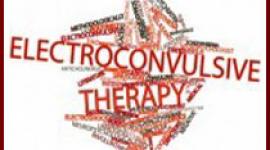The Shocking Truth, Part I, II, III, IV
Thanks for the memories, Fox TV
BY LIZ SPIKOL
lspikol@philadelphiaweekly.com
 It is not my habit to sit at home on Saturday night and watch the Fox 10 O'clock News. It is my habit to sit at home on Saturday night, but watching Fox doesn't generally enter into it. One night, though, my tendency toward the raw side of the TV dial got the better of me.
It is not my habit to sit at home on Saturday night and watch the Fox 10 O'clock News. It is my habit to sit at home on Saturday night, but watching Fox doesn't generally enter into it. One night, though, my tendency toward the raw side of the TV dial got the better of me.
It was a strange twist of fate, I guess--one of those moments some would say was guided by a Higher Power but that I say was simply guided by desperation in the newsroom. The dirty, hidden secret Fox unscraped from beneath the news desk was this: Shock treatments are still performed in the United States and a new study says their benefit is even shorter-term than previously believed.
The coincidence was that I had spent much of the day before reading that study, talking to people about it and even being interviewed for an AP wire report about it. Even at home on a Saturday night, I couldn't escape that study. And I was reminded of it again this week, when 60 Minutes II did a similar story documenting the shock experience.
I had shock treatments for depression in 1996, which I suppose seems like a long time ago. One negative side effect has been that the passage of time does not compute for me the way it does for others. I couldn't tell you a thing about what I did two weeks ago, so it's as if two weeks ago never happened. If you go through years like that, the years easily disappear.
The benefits were short-term--about three months. Exactly one year later, I was back in the psych ward once again. If it surprises you that I had shock treatments, it shouldn't--between 100,000 and 200,000 people will have them this year, and that's just an estimate.
Unfortunately, there are no reliable statistics on the administration of shock treatments because, unlike most medical practices, reporting is not federally required. Just this year, Vermont became the first state to mandate record-keeping about shock therapy. And the machines used to perform shock treatments have been grandfathered out of regulation, so they can be as old as a Chevy in Cuba.
Fox News didn't say much about regulation, but they did something few media outlets had done before this week: They showed someone receiving shock treatments.
In most people's minds, the image of shock is of Jack Nicholson in One Flew Over the Cuckoo's Nest . That's no longer accurate. As the doctors will tell you, with the IV muscle relaxant, the most that happens to the body when the electric shock induces a grand mal epileptic seizure is a slight curl of the toes.
The woman on Fox, who was a patient of Dr. Harold Sackheim, the author of the new study everyone's in a lather about, was pretty, with dark brown hair, and looked to be in her 40s. As Sackheim is a great proponent of shock therapy, and a financial beneficiary (hence the controversy surrounding his research), he was likely more than happy to provide Fox with an exemplar of how well the therapy can work.
But if you're at the point in your mental illness where you need shock treatments, you are truly in extremis. Is this an appropriate time for a doctor to ask his patient to appear on television?
I'm not surprised by Sackheim because, as I'll relate later, I think he lacks integrity. Nor do I blame Fox, because I imagine Sackheim (the supposed expert) told them she was fit as a fiddle for an interview.
But she wasn't, really. One friend who saw the broadcast said, "She looks like she's on Pluto."
There she sat, her hair still wet from the gel they use for the electrodes. She had a strange half smile on her face and her eyes were looking beyond the camera. She spoke of feeling like this might actually be the answer for her. But her voice was light and airy and she gave the impression of being less than her physical being would imply. I felt sorry for her.
When I had shock treatments, I was just as hopeful. I wonder if she will be as crushingly disappointed when she discovers how short-term her relief will be. Will she, like me, think it darkly comic that though shock treatments are most often given to people who are suicidal, the majority of those who end up killing themselves have already had shock treatments?
I did all the right things the following Monday--called the bioethicist, talked to the activists, did the research on the newest research. I don't think the information on this study is being disseminated properly, and I'll do my best to remedy that. But for now, I can't help thinking of that woman and the newscast of her shock treatments.
I was expecting the curl of her toes. But I had no idea the face contorts like that.
I understand now why I had a huge mouthpiece between my teeth. They told me it was just a precaution in case something went wrong. But the muscles in the face tense pretty violently.
So now I have another memory I didn't have, courtesy of Fox News on a Saturday night. Who says it's a bore to stay home? PW
The Shocking Truth, Part II
Why the sudden media blitz? And why is it all so lacking?
BY LIZ SPIKOL
lspikol@philadelphiaweekly.com
The Pelican Brief is bad, stupid filmmaking. But Sunday night, I sat in my bedroom, transfixed by Julia Roberts as a young law student pursuing The Truth despite the fact that it puts her life in danger and kills her older/drunk/ depressive lover. Denzel Washington plays Woodward and Bernstein all by himself -- taking deep-throated tips on the phone, calling his editor from pastoral scenes that actually bristle with malice. With all that expressionless tenacity and sleeping upright with scribbled notes in lap, the only cliche Washington isn't shoved into is an affair with Roberts, which I assume is because he's black and she's white.
Thing is, the movie does get you all runny about being a journalist. It makes you ask yourself, again, why you do what you do. And when I get really, really mad at another media outlet, I try to think of a producer from, say, 60 Minutes II, watching The Pelican Brief in his pajamas on a Sunday night getting all runny inside, too. Maybe it's at a moment like this that he thinks, "Gee, I really screwed that story up ..."
I'll own up to mistakes myself. In my last column, I said Vermont was the first state to require record-keeping in relation to shock treatments. That's not true. Normally, the column would have been fact-checked, but I told our copy editor, "I fact-checked it myself." (If that isn't a cry for help, I don't know what is.) The other states that require record-keeping are California, Colorado, Texas, Illinois and Massachusetts.
I know 60 Minutes II has to give Charles Grodin his 30 seconds or so to be droll and effete, so I thought I'd issue a clarification on its behalf--when I got a call from Joel Bernstein, the producer of the segment on shock treatments who I'd just, one night before, been envisioning in footies.
Turns out, of course, that Bernstein and I were talking about radically different shows. While I heard him call Dr. Harold Sackheim a "physician," he told me that right before the show he changed that to "doctor," after he was informed that Sackheim was not, in fact, an M.D. We had other disagreements about Sackheim: I think the show made an error in judgement by giving Sackheim a disproportionate amount of air time, making it seem as though he were the primary expert in the field.
Bernstein told me, "The hospital where he works does a lot of it [ECT]. They have a strong research program there." Well, I do a lot of playing with my dog, but that doesn't make me an animal behaviorist. And Sackheim doesn't actually "do" any ECT--because he's not a psychiatrist. Bernstein told me, "I'm sure Sackheim makes a nice salary, but he doesn't make any money from doing the treatments himself." Because he can't--but those research grant applications have been rolling in under his name since 1981, garnering roughly $5 million dollars from the National Institute of Mental Health.
Sackheim has also acted as a (paid and unpaid) consultant to a company that makes ECT machines, MECTA. The show did not disclose Sackheim's ties to MECTA, including the fact that he testified on their behalf in a product liability suit against a shock machine manufacturer in 1989.
"I knew about his ex-ties with MECTA," Bernstein said, but he also said Sackheim denied any current financial connection, which would--he's right--negate conflict of interest. Should the past linkages bother me? They don't bother Bernstein, and he's been doing this a lot longer.
Bernstein and I quibbled on other details, but he believes he presented a balanced view. "We pointed out what everybody ought to know by now--that there is no cure for depression. I never implied that this was a magic bullet." That's true, but Sackheim was allowed to say on-camera, with no opposition, that, "The medical community recognizes universally that ECT is the most effective antidepressant we have."
The "medical community" does no such thing--and who is Sackheim to speak for it?
ECT can be effective for roughly 80 percent of those who undergo it. But as with any medication, if you stop taking it, you stop receiving the benefits. Interestingly, the most recent study on the devastatingly high relapse rate was done by Sackheim himself. The study showed that more than half of those who undergo ECT will relapse in 6-12 months. One wonders if Sackheim's increased media presence isn't the industry's way of putting a spin on those very depressing results.
Sometimes journalists rely on others to tell them who to interview. "Who's the best person to talk to in this field?" I might reasonably ask someone who specializes in hot-metal biomechanics.
In this case, 60 Minutes II didn't do enough backgrounding. I find it discouraging that with so many qualified, uncompromised, knowledgeable and honest psychiatrists who practice ECT, 60 Minutes II chose to highlight Harold Sackheim. Nothing could be worse for the show's credibility.
Producer Joel Bernstein told me at the end of our call, "We did this whole thing in 10 days--it was very fast. In retrospect, I wish I could have taken more time with it." I have a feeling he wouldn't have relied on Harold Sackheim if he did.
I asked Bernstein where he got the idea for the story. "A psych friend told me that shock therapy was making a comeback and then The Atlantic magazine story came out, and that was the shove I needed."
Perhaps that's the real story here. Is all this damage control, orchestrated by Sackheim and friends? Who called The Atlantic Monthly --or Associated Press or Reuters or Fox News--and pitched the story? That, I'm sure as I am a journalist, is the bigger tale to tell. PW
The Shocking Truth, Part III
As the battle over "informed consent" rages on, when does "yes" mean "yes"?
BY LIZ SPIKOL
lspikol@philadelphiaweekly.com
I have a vague memory of it, sitting across from my mother in a booth at PhilaDeli on Fourth and South, begging for shock treatments. I'm not sure what I had heard and where, but on that day, I would not be deterred: Give me ECT or give me death.
From research, I had come to believe that electroconvulsive therapy was not only my last hope, but also my best hope. And though I was not well enough to work or to live alone or to even get through the day without my mother's care, I could still, through it all, be as persuasive as the captain of a winning debate team.
It wasn't so much the logic of what I said that convinced her, but more how I said it--tacking on a guarantee (and she knew it was no bluff) that I would kill myself if we didn't try it. My life was ruined, over, everything had been lost. I had failed to respond to every medication combination, and lived in constant pain. What did I have to lose?
Of course, my mother didn't leave that conversation and immediately sign me up. She did her own extensive research and she and my father spent long hours talking about whether they could subject their child to such seeming barbarism. She spoke to various experts on the subject who told her the pros and cons.
At the time, we were all desperate, and wanted badly to hear the pros outweigh the cons. And luckily, they did.
The experts talked only of immediate after-effects: headache, nausea, muscle aches. They also talked about memory loss, but said it was transient.
There would be short-term amnesia--a post-ECT "Where am I?" kind of thing--and some memory loss of the events surrounding the treatments themselves. Worst-case scenario: permanent memory loss for the couple months preceding the treatments and maybe a month after.
A missed movie, perhaps. Or a forgotten conversation. All of which sounded like small-time worries compared to suicide.
This was presented as the treatment of last resort--as the one thing that might save me. So I consented. I signed the forms myself because, though I was in terrible shape, I was able to do so.
It amazes me now that a doctor considered me competent enough to sign a consent form at the time. But I'm sure it helped having my parents standing right there with me.
Knowing what I do now, I'm not sure I (or my parents) would make the same decision again. What the doctors don't tell you is that the memory loss is much more devastating--and the ECT industry continues to deny this, to cover it up. Of the 240 online responses to last week's 60 Minutes II broadcast on shock treatments, most were from people saying they'd had ECT.
What, in particular, compelled them to write?
The issue of memory loss.
I started to count, but I'm horrible with numbers. One after another, the posts are a sad catalog of anger and despair. The majority spoke of losing more memory than the doctors said they would. "I don't remember my children being born," says one.
The loss these ECT patients suffer goes far beyond the commonly cited "1 in 200" figure that shows up on the model consent form drafted by the American Psychiatric Association (APA). It is this consent form that most hospitals in America still use before giving ECT. It is the consent form I signed.
In a 1996 article from the Washington Post, Dr. Harold Sackheim, whom I wrote about last week, admitted the 1-in-200 number was a fabrication, "an impressionistic number" that would "most likely be omitted from APA reports in the future." That was five years ago, and it has yet to happen.
The real number, of course, is much higher. The fact of the matter is that despite numerous journal articles and testimony from many respected neurologists and psychiatrists, the psychiatric establishment continues to ignore the problem of memory loss. Since research dollars are monopolized by those with an interest in sustaining the industry, no reliable post-ECT studies are being conducted.
When I said "yes" to ECT, I did not truly know what I was saying "yes" to. I was not accurately presented with the risks, benefits and outcomes.
Did I know it was possible I would lose years of memory? Did I know I would forget how to spell certain words, that it would take me years to be able to read a book again? Did I know it was possible the benefits would last only a few months?
No one told me these things. If they had, would I still have done it? I highly doubt it.
I gave consent to the procedure, but it wasn't truly informed--something the supervising doctor on my case admitted to me years later. Unfortunately, the alternate consent forms I've seen proposed are so extreme as to serve only as a deterrent. What is needed is a form that fesses up to the very real probabilities--both good and bad.
But if you think it's a violation of human rights to get a treatment that destroys your brain in ways doctors didn't warn you about, think about the injustice of receiving that treatment against your will. Paul Henri Thomas has already received 40 forced electroshocks at Pilgrim State Psychiatric Center in New York. Another patient there, Adam Szyszko, has gone to court to stop the same hospital from forcing him to receive ECT.
I'll write about both their cases next week. Stay tuned. PW
The Shocking Truth, Part IV
Forced electroshock isn't just the stuff of movies.
BY LIZ SPIKOL
lspikol@philadelphiaweekly.com
I've always been somewhat awed by the Hippocratic Oath. Unlike the presidential Oath of Office, forever tarnished by Bill's perjury, the Hippocratic Oath is still imbued with dignity. I saw this at work on 60 Minutes Sunday, in a story about a mentally ill man who had been moved from death row to a psychiatric facility once it was discovered he was incompetent to stand trial.
His doctor had the ability to make him well enough to stand trial, but told Leslie Stahl that making a man well in order to have him killed violated his notion of the Hippocratic Oath's primary dictum: Do no harm. Why don't doctors who perform electroshock therapy feel the same way?
New York State Supreme Court Justice W. Bromley Hall decided April 16 that Pilgrim Psychiatric Center on Long Island can resume its shock treatments of Paul Henri Thomas, despite Thomas' opposition. Thomas is a 49-year-old inpatient at Pilgrim, which is under the jurisdiction of New York State Office of Mental Health (OMH). He emigrated to the U.S. from Haiti in 1982. Though he has been diagnosed with schizoaffective disorder and bipolar mania (among other diagnoses), he does not believe he is mentally ill. This, according to doctors at Pilgrim, is part of his illness.
Thomas did initially consent to ECT in June 1999. At that time, he was considered competent to consent. But after three treatments he decided he'd had enough--at which point the Pilgrim doctors decided Thomas was incompetent.
Newsday staff writer Zachary R. Dowdy characterized the situation as "a kind of Catch-22--the strange circumstance that Thomas was fine when he consented to the procedure but mentally incompetent when he refused it." Since 1, Thomas has received nearly 60 forced electroshocks.
Part of the doctor's defense of Thomas' forced ECT was the patient's erratic behavior. Justice Hall agreed, writing in his decision, "He was wearing three pairs of pants which he believed provided therapy for him. At the same time he was found, in the ward, wearing layers of shirts which were inside-out, together with jackets, gloves and sunglasses."
Oh my God! Someone stop this man before his commits another fashion faux pas! Strap him down, put him in a diaper, shove a mouthguard between his teeth, administer sedatives and then induce a grand mal seizure in him against his will. Surely after that he'll be calm enough to reconsider his wardrobe.
As his case heated up, Thomas issued a public statement in which he said, "I am currently undergoing forced electroshock treatment. ... It is horrible. ... I am strong. But no human being is invincible. ... I ask God to bless you in anticipation of your helping me in my torture and traumatization. ...Do whatever is possible!"
Anne Krauss worked as a peer advocate in the New York OMH and was assigned to Thomas' case. Krauss supported Thomas' fight against forced ECT but was ordered by her superiors to cease action on his behalf.
On March 21, Krauss resigned. In her letter of resignation, she wrote, "The New York State OMH is taking the position that for me to actively advocate (on my own time and at my own expense) on behalf of Paul Thomas creates a conflict of interest for me in my job .... Given the choice between continuing to work for an agency which so discounts recipients' voices that it will repeatedly force electroshock on someone who has clearly said that he experiences it as torture, or advocating for this person's right to make his own decision about whether electricity should be run through his brain, I am choosing to advocate."
Referring to Thomas' history as a human rights activist, Krauss said, "I am following Mr. Thomas' own example in putting ideals of human rights and liberty before my desire for personal comfort or job security."
Doctors say Thomas' liver would be "further damaged" by giving him antipsychotics. ECT is approved, recommended and effective primarily for depression. It has never been definitively proved, in any clinical study, to be effective for psychosis. Did someone fail to tell the judge that ECT does not equal treatment with antipsychotics?
They also say one of the reasons Thomas denies his illness is because in Haiti, cultural perceptions of mental illness are different. Additionally, doctors admitted that if Thomas were at a private facility, he'd be unlikely to receive ECT.
Is it fair to discriminate against someone simply because he doesn't have money for private care? Or because he comes from a different culture?
If this seems like an isolated case, one need look no farther than down the proverbial hall--where 25-year-old Adam Szyszko also fights forced electroshock at Pilgrim. Szyszko was granted a temporary restraining order. His mother told the Associated Press, "I think it's horrible they are holding my son prisoner. I want the treatments stopped." Her son, a diagnosed schizophrenic, is allergic to the medications Pilgrim would prescribe. Forget the fact that Szyszko and family prefer he try psychotherapy instead of drugs.
Why is Paul Henri Thomas being forcibly shocked while Adam Szyszko--while admittedly in a horrible situation--is not? I wonder if it's because Thomas is black and Szyszko is young and white. Isn't it more wrenching to read about a young man who played classical piano and won awards in grade school? The New York Post sees fit to blare, "MOM'S IN TEARS AS DOCS 'TREAT' HER CAPTIVE SON" about Szyszko, but says nothing about Thomas.
"do no harm." Can anyone at Pilgrim be said, like the doctor on 60 Minutes, to be guarding the integrity of the Hippocratic Oath? It would seem that in New York, the oath has long been forgotten. PW
next: Shock Therapy...IT'S BACK
~ all Shocked! ECT articles
~ depression library articles
~ all articles on depression
APA Reference
Staff, H.
(2007, February 19). The Shocking Truth, Part I, II, III, IV, HealthyPlace. Retrieved
on 2026, March 5 from https://www.healthyplace.com/depression/articles/shocking-truth-part-i-ii-iii-iv



